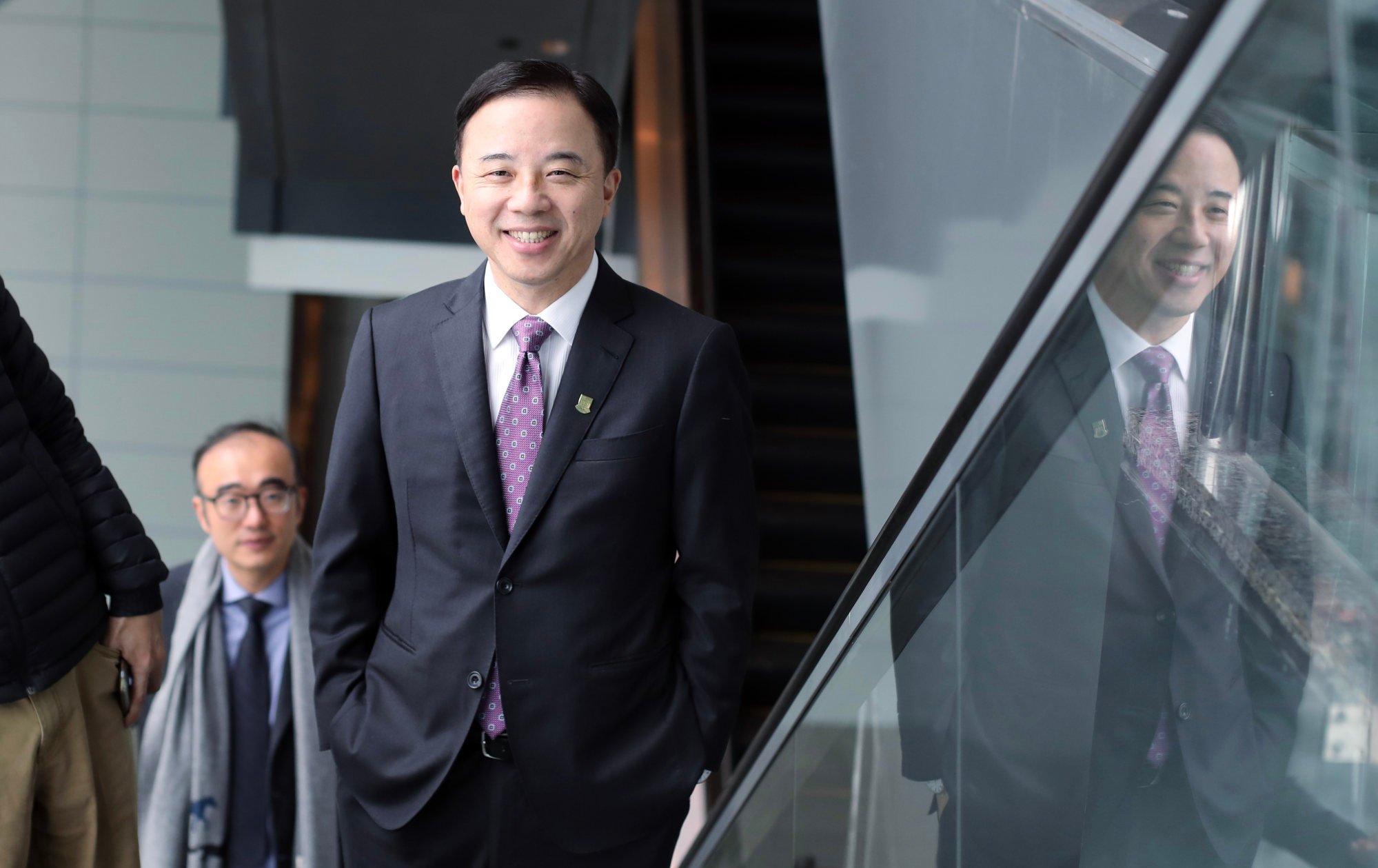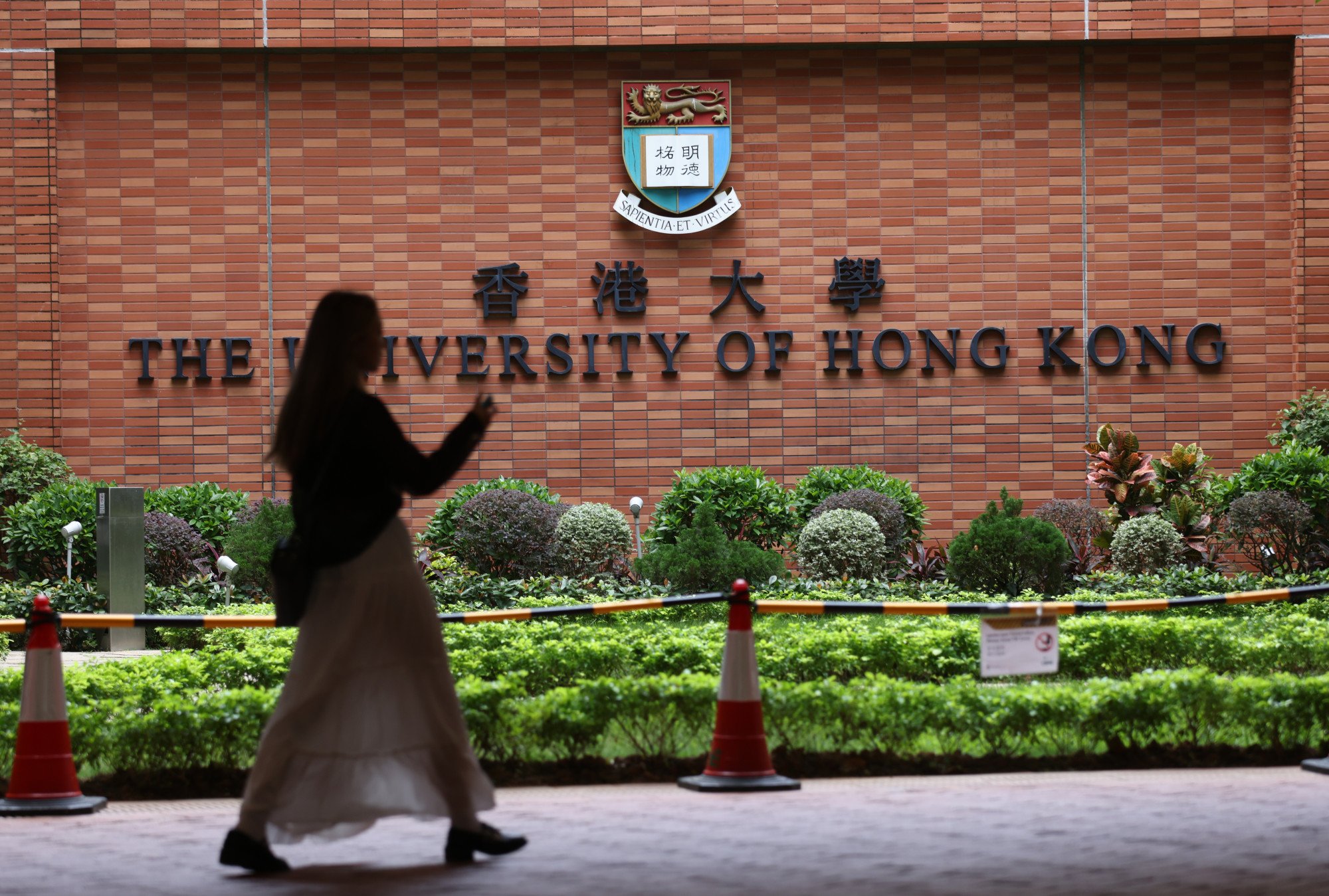
Exclusive | Most University of Hong Kong council members worried over president’s alleged mismanagement
- Misgivings persist despite governing council clearing Xiang Zhang of misconduct allegations, while some feel he’s been unfairly treated
Most of the University of Hong Kong’s (HKU) governing council members continue to harbour misgivings over president Xiang Zhang’s alleged mismanagement even after he was cleared of misconduct accusations, according to internal documents.
But some members also said Zhang’s reputation and integrity were unfairly tarnished, adding the university should learn from mistakes and strengthen governance processes.
The group, set to begin its work soon, will be headed by Permanent Secretary for Education Michelle Li Mei-sheung and Tim Lui Tim-leung, chairman of the University Grants Committee.
According to the internal documents seen by the Post, members highlighted issues related to splurging of public funds and disregard of protocols in project tendering as key concerns.
“The panel’s report only cleared him of misconduct but not of mismanagement, which is a view shared by most of the council members,” a source told the Post.
The documents were written submissions by nearly 20 council members commenting on a report compiled by a panel, which looked into misconduct allegations emanating from anonymous emails.
Last September, council members received emails accusing Zhang of bypassing procedures when replacing a work vehicle with a HK$2 million (US$255,400) BMW he preferred without bidding, inappropriately handling donations from a mainland Chinese corporation and money laundering.
Other allegations included recruiting without bidding for a headhunter from the United States to hire a pro-vice-chancellor in institutional advancement and a medical faculty dean.
In addition, Zhang was also accused of asking for candidates to have a US university background, and leaving a number of senior management positions in acting or interim status for a long time.
The Post has approached the office of HKU’s president for comment.
Council members sent their written submissions before a meeting in April for discussions over the panel’s report.
“University’s procedure and protocol must be followed by all parties including our president and I do hope such breach of procedure will not happen in the future,” one of the members wrote.
Another member’s submission read: “There are clearly governance issues that can improve further especially in the area of tender waivers in the procurement of goods and service.”
A third member said: “The reports show many fundamental breaches that should not have happened at our university. They happened not only due to poor management, but because management disregards rules.”

The member also flagged Zhang’s preference for a candidate with US experience to lead the faculty of medicine, saying the president should consult the faculty because such a decision could have a major impact on the existing operation and strategic planning of the faculty.
“Indication of poor management leads to a failure of duty,” the member said.
Another submission also said the president was “hands-off” in a renovation project on staff facilities costing more than HK$40 million and a mega celebration dinner costing nearly HK$4 million. But he was “hands-on” about selecting his work vehicle and did not know the price of the shortlisted models.
“Although the president was hands-on in relation to the replacement of the HKU vehicle and actively participated in the test drives of the two vehicles, this does not appear to have extended to the financial dimension,” the submission said.
“He did not know the price differential, meaning he was unaware of which vehicle was within the budget and which not. Given the involvement of public funds, he might have been expected to ascertain the price differential.”
A council member said it was shameful for Zhang to use taxpayer funds in such a manner, slamming him as greedy.
Another member said the expensive car could not be justified, while one pointed out the budget of buying the car was raised from HK$1.5 million to HK$2.5 million before Zhang went for the test drive.
One of the submissions which was sent out by a HKU’s senior academic staff said the president “completely changed” the central management structure of the university without the knowledge of the council, which was described “totally unacceptable”.
“The President’s Office comprises 60-plus persons and further the president has appointed a number of what are termed senior advisers,” the member said, requiring an investigation by the council to determine how the university was now being centrally managed by Zhang.
“This behaviour and leadership style cannot be allowed to continue,” the submission read.

Another external member from a large commercial organisation also echoed the appointment of these senior advisers in the president’s office.
“Are these newly created roles? Are these permanent roles? How many are there in the university? Are they paid? Do they have KPIs like other paid staff in the university?” a submission stated.
Members criticising Zhang also said the staff involved should be held accountable.
The Post understands that Zhang has fewer than five allies in the council.
A submission from one of them said the leader was vindicated of the serious allegations but his reputation was tarnished, and that also hurt the university’s standing and disrupted staff morale.
“Let us strive to learn from mistakes, strengthen our governance process and rebuild the trust that has been compromised,” he said.
Another supporting member said the panel report suggested “a complete exoneration of the president”, allowing the management team to be focused on running the university.
Secretary for Education Christine Choi Yuk-lin said the group would check whether the institution abided by the university accountability agreement, adding it would not submit reports on individual incidents.
“[The group] does not aim to write reports but we want it to be instrumental,” she said.
The minister said the group’s timetable would depend on the university operations, expressing hope that findings would be “gradually” made public.
She added the group might meet Zhang and Wong or ask both to file written submissions.
Authorities earlier said the investigation group had three objectives – to clarify the facts, coordinate internal communications, and suggest improvement measures and good practices.
Regina Ip Lau Suk-yee, convenor of the government’s key decision-making Executive Council, said the move by authorities was the “right step forward”, with the city leader having the duty as the chancellor of the university to make sure it was well-governed.
She hoped the president and council chairwoman would refrain from clashing in public while the investigation and study group conducted its work.
“This would affect the reputation of the University of Hong Kong. We should leave it to this team, which is relatively more objective, to investigate issues such as whether there was a breach of procedures and how to improve governance,” she said.
Ip added that the efforts were not simply about finding someone to be held accountable over the saga, but how to improve the institution’s governance and therefore its reputation.
Additional reporting by Harvey Kong

